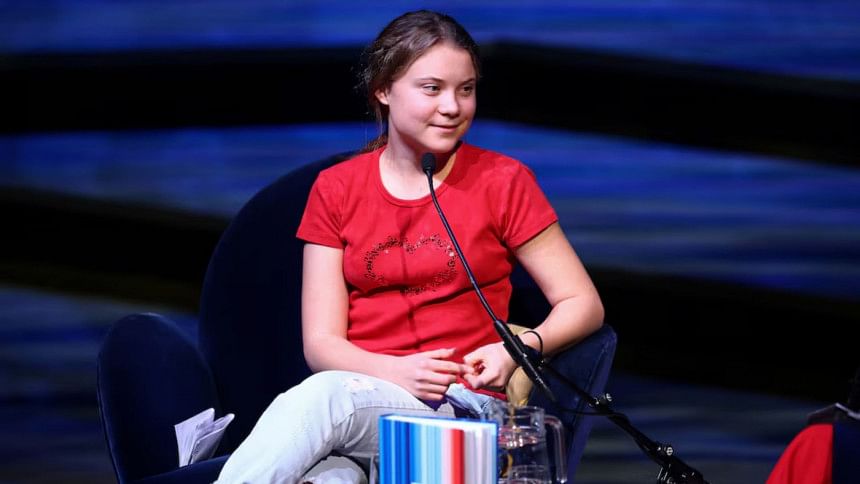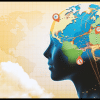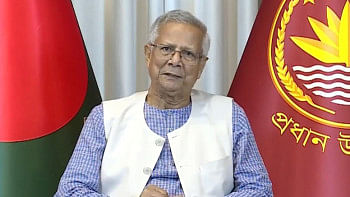Role of citizen diplomacy in a new Bangladesh

In July 2024, a student-led protest movement culminated in the ousting of the Awami League government after 15 years in power in Bangladesh. The revolution ushered in an interim government led by Nobel laureate Dr Muhammed Yunus, marking a significant turning point in the nation's history. This dramatic change raises a question worth pursuing in the shared vision of a safer and more prosperous country: Can citizen diplomacy lead to better relations between the state and its people?
In December 2023, a month before the most recent elections, CIVICUS, a global civil society alliance, downgraded Bangladesh's civic space category to "closed," its worst rating. Citizen diplomats as demonstrated in the last month and a half, can play a tremendous role in increasing civic engagement. Participation of civil society, citizens, and the people of the country promote social justice and democracy, and citizen diplomacy can be an excellent channel for that.
Citizen diplomacy stands in contrast to traditional diplomacy, which is the institutional and state-sponsored implementation of foreign policy. While a diplomat represents a state and is typically employed by a government entity like the Ministry of Foreign Affairs, a citizen diplomat operates outside these formal structures. Citizen diplomacy empowers individuals and non-governmental organisations to influence policy-making processes.
To fully understand the potential of citizen diplomacy, we can consider the broader context of international relations (IR) and diplomatic culture. IR Scholar Raymond John Vincent's 1975 perspective on diplomatic culture provides valuable insight. Vincent argues that traditional diplomatic culture is rooted in European aristocratic cosmopolitanism, and provides customs, precedents, and manners aligned with the elite diplomats. This culture gave rise to creating international law, treatises and principles like the balance of power and pivotal congregations like the Hague Conference or Vienna Convention. While this outlook focuses on procedural aspects and principles of sovereignty and non-intervention, in today's context, the role of non-state actors and civil society leaders cannot be understated. We can see this in the case of Greta Thunberg, the Swedish activist who has interacted with institutional entities as a citizen diplomat.
The roots of citizen diplomacy can be traced back to pivotal moments in history. In 1945, the US State Department invited 42 NGOs to send consultants to participate in drafting the UN Charter at the San Francisco Conference. These organisations represented a diverse cross-section of society, including business, agriculture, education, law, women's rights, religious groups, and peace advocates. Their involvement led to significant outcomes, such as the inclusion of education in the Economic and Social Council's purview.
Bangladesh's recent experience with citizen diplomacy has shown remarkable potential in the short term. The interim government that emerged from the protests embodies this potential, comprising a diverse group of individuals from various backgrounds and age groups. Some of the student leaders from the anti-discrimination protest movement now serve as advisors alongside established academics, NGO leaders, and civil society members. This organic rearrangement of the social fabric within the government structure holds promise for positive change if Bangladesh and the international community can fully harness the power of ongoing citizen diplomacy efforts. By engaging citizens more directly in institutional decision-making, citizen diplomacy can pave the way for more substantive and direct democracy.
However, the long-term sustainability and impact of citizen diplomacy in Bangladesh is uncertain. While it has shown promise in reshaping institutional processes and increasing civic engagement, questions persist about its ability to achieve and maintain momentum over time. There is also an organisational challenge for this non-institutional form of diplomacy, and it needs some process and structure for continuity. The challenge further lies in having effective communication in the absence of institutional structures.
The ability of citizen diplomacy to engage a wider spectrum of voices in the diplomatic process challenges traditional power structures and opens new avenues for civic participation. While challenges and uncertainties remain, the potential benefits of citizen diplomacy in creating a more liveable and safer society are significant. As Bangladesh continues to evolve politically, the role of citizen diplomats in shaping the nation's future will be interesting to watch. Their efforts may set a precedent for other regional nations grappling with similar challenges, demonstrating the power of practicing diplomacy outside the institutional setup.
Sadman Rahman is a policy expert with the United Nations Development Programme.
Views expressed in this article are the author's own.
Follow The Daily Star Opinion on Facebook for the latest opinions, commentaries and analyses by experts and professionals. To contribute your article or letter to The Daily Star Opinion, see our guidelines for submission.

 For all latest news, follow The Daily Star's Google News channel.
For all latest news, follow The Daily Star's Google News channel. 










Comments